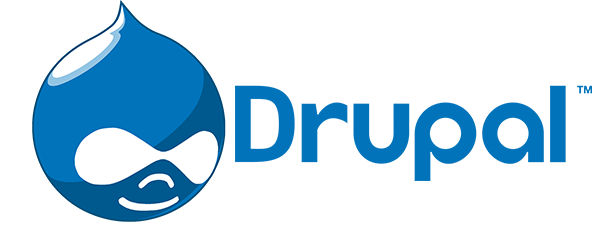In November 2015, Drupal released its long awaited Drupal 8. It’s now the shiny new (free) object in the Content Management System (CMS) world. Should you convert my Drupal 6 or Drupal 7 or WordPress website to Drupal 8? Not yet.
Drupal and WordPress take vastly different worldviews of their CMS’s and users which largely derives from how they evolved. WordPress started as a blogging platform that you could add a few traditional web pages to such as an “about me” page. I started using WordPress as a CMS about 10 years ago by cobbling it together as posts, pages, and menus. WordPress eventually made these natural features, making my life as a site builder and developer much easier. WordPress publishes 3-4 “major” updates each year. These major updates are incremented by each dot number (i.e. version 4.1 is followed by version 4.2). Unlike Apple and Microsoft products, the first number is not significant (i.e. iOS8 is different than iOS9). Minor updates — bug and security fixes — are given an additional dot (i.e. 4.2.1 fixes bugs and security issues in 4.2). Each major update is evolutionary. It builds on the previous version, is almost completely backward compatible and generally adds additional features or cleans up janky ones.
Drupal, on the other hand, started as a pure CMS and continues as such. Drupal is a little heavier duty as a CMS than WordPress and certain things are far easier to do in Drupal than WordPress, especially creating and displaying custom post types and data. Each major release of Drupal (i.e. Drupal 6, Drupal 7) is essentially a different CMS eco-system. They are not backward compatible at all. Modules and themes that work in Drupal 6 will not work at all in Drupal 7 or 8. Major releases come years apart. For instance, Drupal 7 was first released in January 2011 and Drupal 8 nearly 5 years later. Bug fixes and feature updates are made in minor releases which are given sequential numbers after the major release (i.e. the current Drupal 7 release is 7.42).
Back to Drupal 8. The new CMS is a complete re-do of the CMS. One criticism of CMS’s is they are slow in rendering web pages and are web server resource hogs. There are workarounds to improve performance (such as server-side page caching and reverse proxies), but the developers of Drupal 8 sought to make the CMS itself more efficient. It uses the Symfony PHP high-performance framework to operate. It also sought to change how theme templates are coded. Previously, PHP was used to code the templates. Template designers tend to be more artistic types and less coder types. Drupal 8 uses a simplified template programming engine called Twig to help with this (it’s more like English than coding). It is also responsive — will adjust to any screen size — out of the box. This is a huge advantage over other CMS’s which have to build that into each theme or use a responsive base theme. The world is going mobile and websites must adjust to different screen sizes to accommodate users and Google.
Why wait to switch? The modules and themes lag in development since the base code is constantly changing during the development of the core Drupal 8 product. Three months after 8’s release, of the top 20 modules used in Drupal 7 that were not migrated into 8’s core or deprecated because it was not needed in 8, only 2 have stable releases. Many others have no development versions released and others are at an alpha stage (before later beta, release candidate and stable stages). There are no stable eCommerce platforms for 8. I waited about a year after Drupal 7 was released before I migrated clients off of Drupal 6 largely due to the lack of production-ready modules. It will probably take a year for the same to happen with 8. If you’re happy with your current D7 or WordPress site, there is no need to change at all.
One caveat: with the release of Drupal 8, Drupal 6 will no longer be supported (as of 2-24-2016). Not only does that mean no security updates, but it also means removal of all modules from Drupal’s repository. If you have a Drupal 6 site, you need to strongly consider moving to 7 or 8 quickly.
If you would like to talk about your website needs, please contact me.
